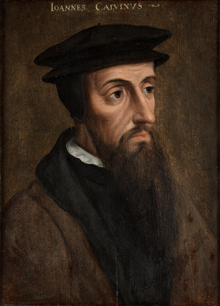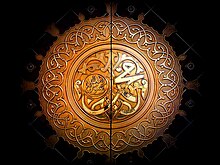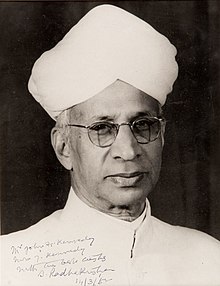Portal:Religion
The Religion Portal
Religion is a range of social-cultural systems, including designated behaviors and practices, morals, beliefs, worldviews, texts, sanctified places, prophecies, ethics, or organizations, that generally relate humanity to supernatural, transcendental, and spiritual elements—although there is no scholarly consensus over what precisely constitutes a religion. Different religions may or may not contain various elements ranging from the divine, sacredness, faith, and a supernatural being or beings. (Full article...)
 Vital article
Vital article

Jesus (c. 6 to 4 BC – AD 30 or 33), also referred to as Jesus Christ, Jesus of Nazareth, and many other names and titles, was a 1st-century Jewish preacher and religious leader. He is the central figure of Christianity, the world's largest religion. Most Christians believe Jesus to be the incarnation of God the Son and the awaited messiah, or Christ, a descendant from the Davidic line that is prophesied in the Old Testament. Virtually all modern scholars of antiquity agree that Jesus existed historically. Accounts of Jesus's life are contained in the Gospels, especially the four canonical Gospels in the New Testament. Academic research has yielded various views on the historical reliability of the Gospels and how closely they reflect the historical Jesus. (Full article...)
 Did you know (auto-generated)
Did you know (auto-generated)
- ... that Musa va 'Uj depicts figures from all three Abrahamic religions?
- ... that Freedom of Religion South Africa filed an unsuccessful lawsuit to keep child spanking legal?
- ... that fictional religions, often described in speculative fiction, have in some cases inspired real religious movements?
- ... that religious studies scholar C. Jouco Bleeker believed that religions are like acorns?
- ... that Gamaliel's principle has been used to support religious pluralism and reforms within religious groups?
- ... that the capital of South Ossetia once had more Jews than Ossetians?
John Calvin (/ˈkælvɪn/; Middle French: Jehan Cauvin; French: Jean Calvin [ʒɑ̃ kalvɛ̃]; 10 July 1509 – 27 May 1564) was a French theologian, pastor and reformer in Geneva during the Protestant Reformation. He was a principal figure in the development of the system of Christian theology later called Calvinism, including its doctrines of predestination and of God's absolute sovereignty in the salvation of the human soul from death and eternal damnation. Calvinist doctrines were influenced by and elaborated upon the Augustinian and other Christian traditions. Various Congregational, Reformed and Presbyterian churches, which look to Calvin as the chief expositor of their beliefs, have spread throughout the world. (Full article...)













































![Image 1 Prometheus tortured by the eagle (black-figure kylix, 560-550 BC) In Greek mythology, Prometheus (/prəˈmiːθiəs/; Ancient Greek: Προμηθεύς, [promɛːtʰéu̯s], possibly meaning "forethought") is one of the Titans and a god of fire. Prometheus is best known for defying the Olympian gods by taking fire from them and giving it to humanity in the form of technology, knowledge and, more generally, civilization. (Full article...)](http://upload.wikimedia.org/wikipedia/en/d/d2/Blank.png)





















